
Closed
New Frontiers in Research Fund (NFRF) — Special Calls Stream
Last Update: December 19, 2025
Canada
Supports interdisciplinary Canadian-led research for equitable postpandemic recovery
Grant and Funding
At a glance
Funding available
Financing goals
Reduce the ecological footprint
Research and experimental development
Eligible Funding
- Maximum amount : 250,000 $
- Up to 25% of project cost
Timeline
- Open Date : May 3, 2022
- Closing date : August 9, 2022
Eligible candidates
Eligible Industries
- Professional, scientific and technical services
- Health care and social assistance
Location
- Canada
Legal structures
- Non-profit
- Public or Parapublic institution
Annual revenue
- All revenue ranges
Organisation size
- All organization sizes
Audience
- Indigenous Peoples
- Persons with Disabilities
- Other Racialized Persons
- 2SLGBTQI+
Non-profit candidates
Sector of operation
- Higher Education
- Research
- Environment
- Economic, Social and Community Development
- International Activities
- Diversity and Inclusion
Target groups
- General public
- Indigenous peoples
- People with disabilities
- Women & girls
- LGBTQ+ community
- Rural / Remote communities
- Academia / students
- Community leaders
- Minority groups
Revenue structures
- All structures
Scope
- Municipal
- Regional
- Provincial
- National
- International
Overview
The New Frontiers in Research Fund (NFRF) — Special Calls Stream funds Canadian-led, interdisciplinary research that directly addresses one or more priorities in the UN Research Roadmap for the COVID-19 Recovery, supporting a more equitable, sustainable and resilient postpandemic reality, with up to $250,000 per year (including indirect costs) for two years. Eligible activities include short- and medium-term research projects (or discrete phases of longer programs) that combine at least two disciplines and are fully executable within the NFRF budget.
Activities funded
- Canadian-led interdisciplinary research projects that directly address one or more research priorities identified in the UN Research Roadmap for the COVID-19 Recovery.
- Innovative research projects supporting a more equitable, sustainable and resilient postpandemic recovery (including projects aligned with “quick-win”, “best-buy” and “game-changer” priorities in the UN Roadmap).
- Short- and medium-term research projects, or discrete phases of longer-range research programs, with demonstrable results/impact by the end of the grant period.
- Research projects that include community engagement and partnerships, where appropriate, to ensure tangible outcomes and knowledge mobilization.
- Research projects carried out through national, international and cross-sector collaborations (public, private or other), where appropriate.
Examples of admissible projects:
$ 250,000
Study on data-driven approaches to improve healthcare delivery post-COVID-19
$ 250,000
Study on the impact of remote work on productivity and well-being
$ 250,000
Interdisciplinary research on housing stability for low-income families post-COVID-19
$ 250,000
Research on economic recovery strategies for small businesses post-pandemic
$ 250,000
Interdisciplinary study addressing mental health disparities among youth post-COVID-19
$ 250,000
Interdisciplinary research on educational inequalities highlighted by the COVID-19 pandemic
Eligibility
- The application must be submitted by a research team of at least two people, led by a nominated principal investigator (NPI) and including either a co-principal investigator (co-PI) or a co-applicant.
- The NPI must be an independent researcher whose primary affiliation is with a Canadian institution that holds full institutional eligibility with CIHR, NSERC or SSHRC.
- The project must directly address one or more research priorities in the UN Research Roadmap for the COVID-19 Recovery and clearly demonstrate this fit.
- The project must be interdisciplinary, combining elements from at least two different disciplines.
- The team must include at least one principal investigator (NPI or co-PI) with expertise in social, economic or socio-economic research and/or implementation science, and is expected to include international members (with a strong encouragement to include members from lower-middle or lower-income countries, unless a uniquely Canadian context is justified).
Who is eligible?
This grant supports projects that align with the UN Research Roadmap priorities and address socio-economic recovery post-pandemic through justice and equity. Projects must exhibit interdisciplinarity and innovation, whilst integrating principles of equity, diversity, and inclusion.
- Equity, Diversity, and Inclusion: Pass/Fail - Commitment to EDI in project teams, particularly through removing barriers and fostering inclusive environments.
- Interdisciplinarity/Fit to Program: Pass/Fail - Demonstrating response to UN Roadmap priorities with elements from at least two different disciplines.
- High Risk: 30% - Assessment of novelty and innovation in addressing UN Roadmap priorities.
- High Reward: 40% - Evaluating potential impact and significance in terms of socio-economic benefits or advancements towards Sustainable Development Goals.
- Feasibility: 30% - Evaluation of research challenge, team expertise, work plan, and inclusive approaches such as GBA+.
Who is not eligible
- For-profit companies (cannot be an eligible affiliation for a co-principal investigator or co-applicant; collaborators from for-profit companies may participate but cannot access grant funds).
- Federal, provincial, territorial or municipal government departments (cannot be an eligible affiliation for a co-principal investigator or co-applicant; collaborators from government may participate but cannot access grant funds).
Eligible expenses
- Direct research project costs (up to $200,000 per year, for up to two years).
- Indirect costs (up to 25% of the direct research costs), limited to eligible expenses under the Research Support Fund.
- For eligible Canadian colleges only: salaries for part-time faculty (contract of less than three years) for project research activities.
- For eligible Canadian colleges only: salaries and non-discretionary benefits for technical/professional staff carrying out research/technology and/or knowledge transfer personnel (excluding research administrators and business development personnel).
- For eligible Canadian colleges only: course load reduction replacement costs (up to $9,000 per course load reduction per semester per faculty, or the equivalent of 0.1 FTE).
- For eligible Canadian colleges only: student salaries (including non-discretionary benefits) or stipends to support student involvement in the project.
Ineligible Costs and Activities
- Salaries and benefits for research administrators or business development personnel
- Project work performed by, or grant funds paid to, team members affiliated with for-profit companies
- Project work performed by, or grant funds paid to, team members affiliated with federal, provincial, or municipal governments
- Applications for projects that are the same as or similar (in whole or in part) to applications already submitted to or funded by a federal research funding agency program (including other NFRF competitions)
- Personal information about research team members included in the Equity, Diversity and Inclusion (EDI) section
Eligible geographic areas
- Canada (the nominated principal investigator’s primary affiliation must be with a Canadian institution holding full institutional eligibility with CIHR, NSERC or SSHRC).
Selection criteria
- Equity, diversity and inclusion (EDI) (pass/fail): commitment to EDI in the research team, including planned actions, expected outcomes and assessment for team composition/recruitment, training/development, and inclusion.
- Interdisciplinarity / fit to program (pass/fail): clear alignment with one or more priorities in the UN Research Roadmap for the COVID-19 Recovery; includes at least one socio/economic/socio-economic and/or implementation science expert among the principal investigators; combines at least two different disciplines.
- High risk (30%): novelty and innovativeness of the proposed approach to addressing UN Roadmap priorities, including why it is expected to lead to change.
- High reward (40%): potential for significant impact/change (e.g., economic, social, health, technological, etc.) and contribution toward the UN Sustainable Development Goals.
- Feasibility (30%): strength of the project plan and team’s ability to execute, including work plan/timeline, research uptake plan, and integration of GBA+ considerations where appropriate.
How to apply
1
Understand the Eligibility
Ensure the project team meets all eligibility requirements.
2
Attend Webinars
Participate in the March 1st webinars to gather more detailed information about the competition and the application process.
3
Submit Notice of Intent (NOI)
- Complete the NOI by April 26, 2022, via the Convergence Portal.
- Submit the NOI to the research administrator at your institution for them to submit through the portal.
4
Prepare Full Application
- After submitting the NOI, prepare the full application, ensuring all guidelines are followed.
- Include a project proposal, budget, and evidence of equity, diversity, and inclusion strategies.
5
Submit Full Application
- Complete and submit the full application by August 9, 2022, via the Convergence Portal.
- Have the research administrator submit it through the portal before the deadline.
6
Await Results
Results are announced in January 2023. Check the Convergence Portal for updates and feedback.
Processing and Agreement
- Applications are screened for eligibility and completeness; submissions that do not meet requirements are withdrawn.
- Eligible full applications are evaluated by external reviewers (high risk, high reward, feasibility).
- A multidisciplinary/multisectoral review panel assesses the full application (including external reviews) and applies pass/fail checks for EDI and interdisciplinarity/fit to program, then scores the remaining criteria.
- The review panel makes funding recommendations to the NFRF Steering Committee, which makes the final funding decisions.
- Applicants are notified of results via the Convergence Portal and receive a summary of the evaluation (ratings by criterion).
Additional information
- Projects awarded through this Special Call may be eligible for supplemental funding from one or more partner organizations (subject to partner-specific criteria).
- Successful project teams are expected to attend a forum at the mid-term and at the conclusion of the grant period to present findings and lessons learned.
- A proportion of awards is reserved for early career researchers, in proportion to the share of applications received from early career researchers.
- Applicants are encouraged to consult competition updates regularly, including information about webinars, to ensure submissions are complete.
Contacts
NFRF-FNFR@chairs-chaires.gc.ca
Canada
Apply to this program
Frequently Asked Questions about the New Frontiers in Research Fund (NFRF) — Special Calls Stream Program
Here are answers to the most common questions about the New Frontiers in Research Fund (NFRF) — Special Calls Stream. This section explains what the program is, how much funding is available, eligibility requirements, application deadlines, and other important details to help you determine if this grant is right for your business.
What is the New Frontiers in Research Fund (NFRF) — Special Calls Stream?
How much funding can be received?
What is the deadline to apply?
Who is eligible for the New Frontiers in Research Fund (NFRF) — Special Calls Stream program?
What expenses are eligible under New Frontiers in Research Fund (NFRF) — Special Calls Stream?
Who can I contact for more information about the New Frontiers in Research Fund (NFRF) — Special Calls Stream?
Where is the New Frontiers in Research Fund (NFRF) — Special Calls Stream available?
Apply to this program
More programs like this

Grant and FundingClosed
Industrial Research Assistance Program (IRAP) – AI Assist
National Research Council Canada (NRC)Supports Canadian SMEs in adopting and integrating advanced AI solutions

Wage Subsidies And InternsOpen
Industrial Research Assistance Program (IRAP) — Youth Employment Program (YEP)
National Research Council Canada (NRC)Money to hire a student

Researchers And FacilitiesPartnering and CollaborationWage Subsidies And InternsOpen
Mitacs Accelerate
MitacsConnect organizations with academia for research and innovation collaboration

Grant and FundingClosed
ISED — Artificial intelligence (AI)
Innovation, Science and Economic Development Canada (ISED)Supports testing innovative AI prototypes for Canadian government needs

Grant and FundingOpen
Global Innovation Clusters
Innovation CanadaFinancial assistance to work in collaboration on innovation projects
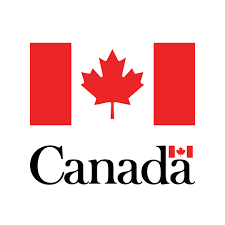
Grant and FundingOpen
IP for Business
Canadian Intellectual Property Office (CIPO)Intellectual property training, tools and expertise
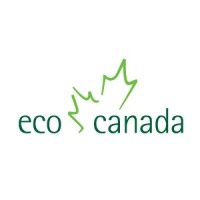
Wage Subsidies And InternsOpen
ECO Canada — Student Work Placement Program
ECO CanadaMoney to hire students for an environmental co-op
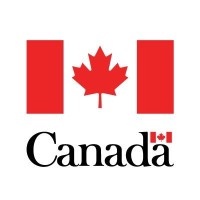
Grant and FundingClosed
Enhanced Road Safety Transfer Payment Program (ERSTPP)
Transport Canada (TC)Funds projects to enhance road safety and reduce traffic injuries
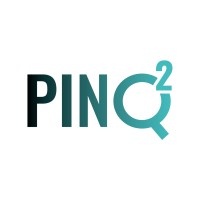
Researchers And FacilitiesExpert AdviceOpen
Digital and Quantum Innovation Platform — PINQ²
Plateforme d'Innovation Numérique et QuantiqueGet expert advice and the use of a high-tech environment
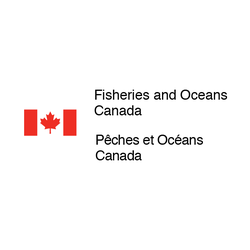
Grant and FundingClosed
Canada Nature Fund for Aquatic Species at Risk (CNFASAR)
Fisheries and Oceans Canada (DFO)Supports recovery and protection of aquatic species at risk
Sign up to our platform to access the New Frontiers in Research Fund (NFRF) — Special Calls Stream information sheet for free
Get access to 4,000+ programs, practical guides, personalized alerts, and an AI assistant to support your grant applications.